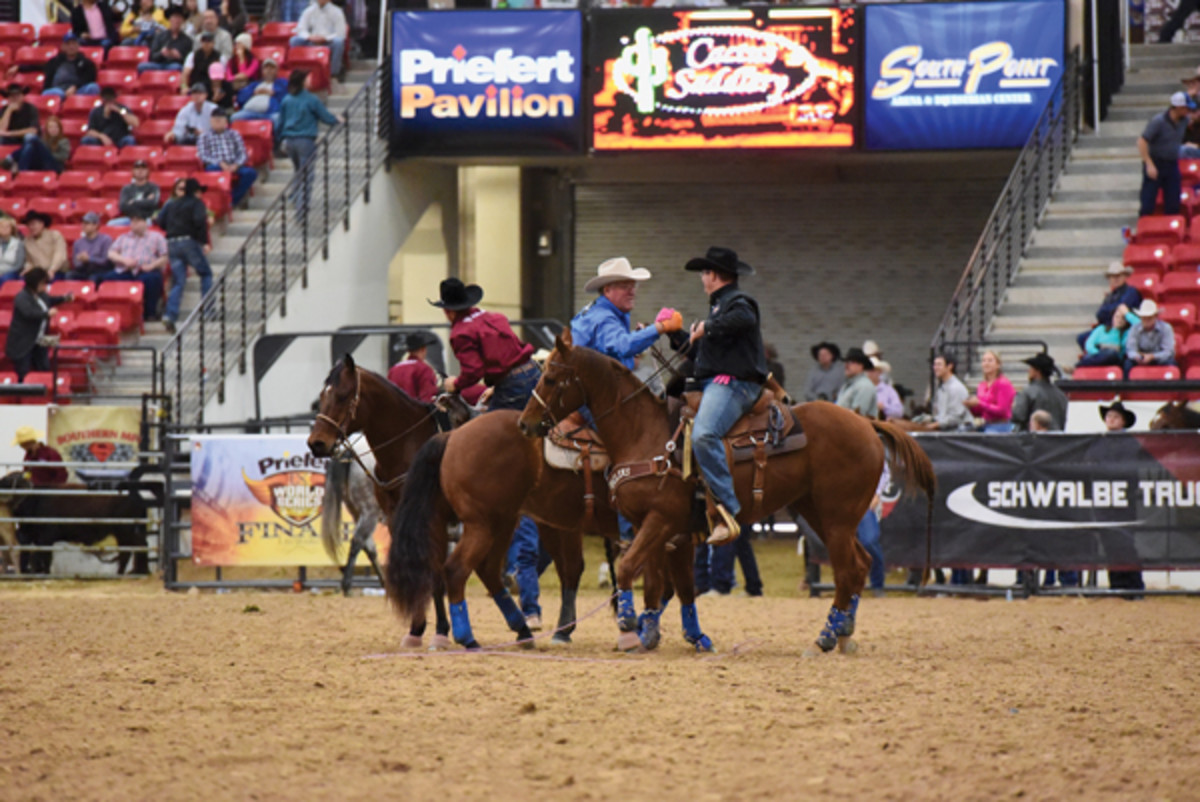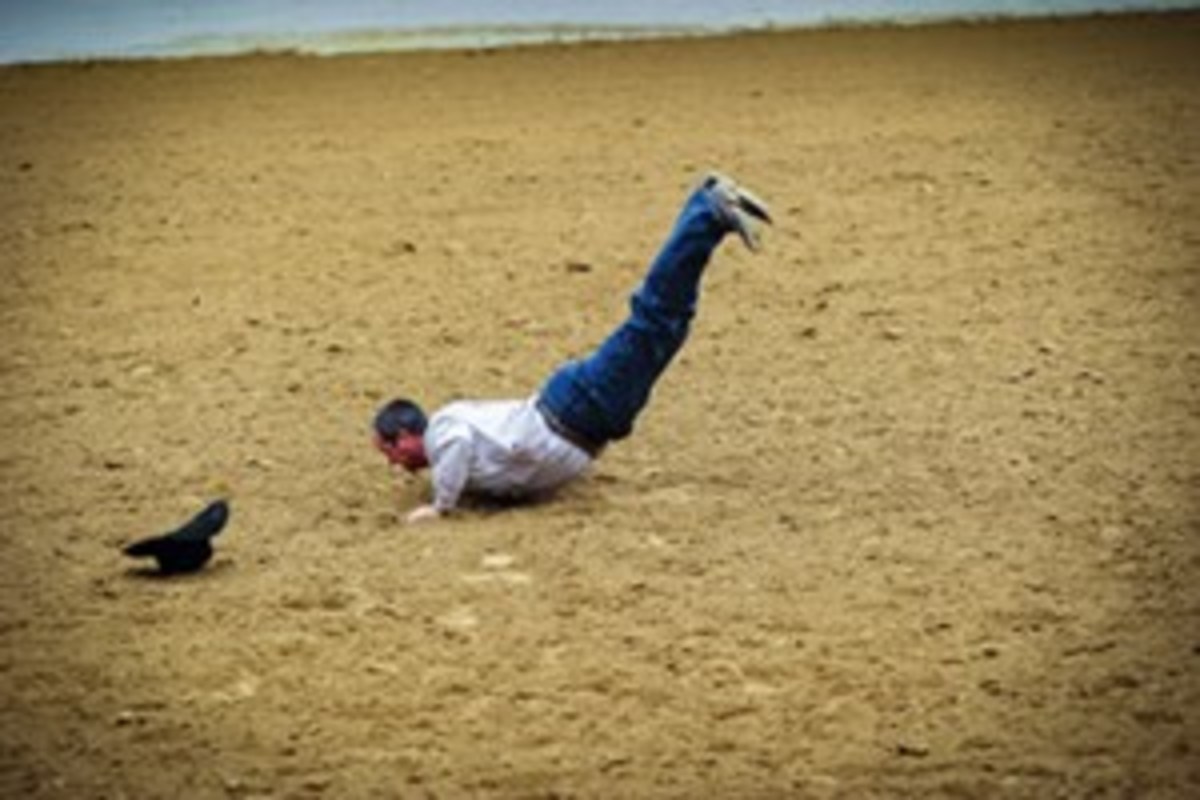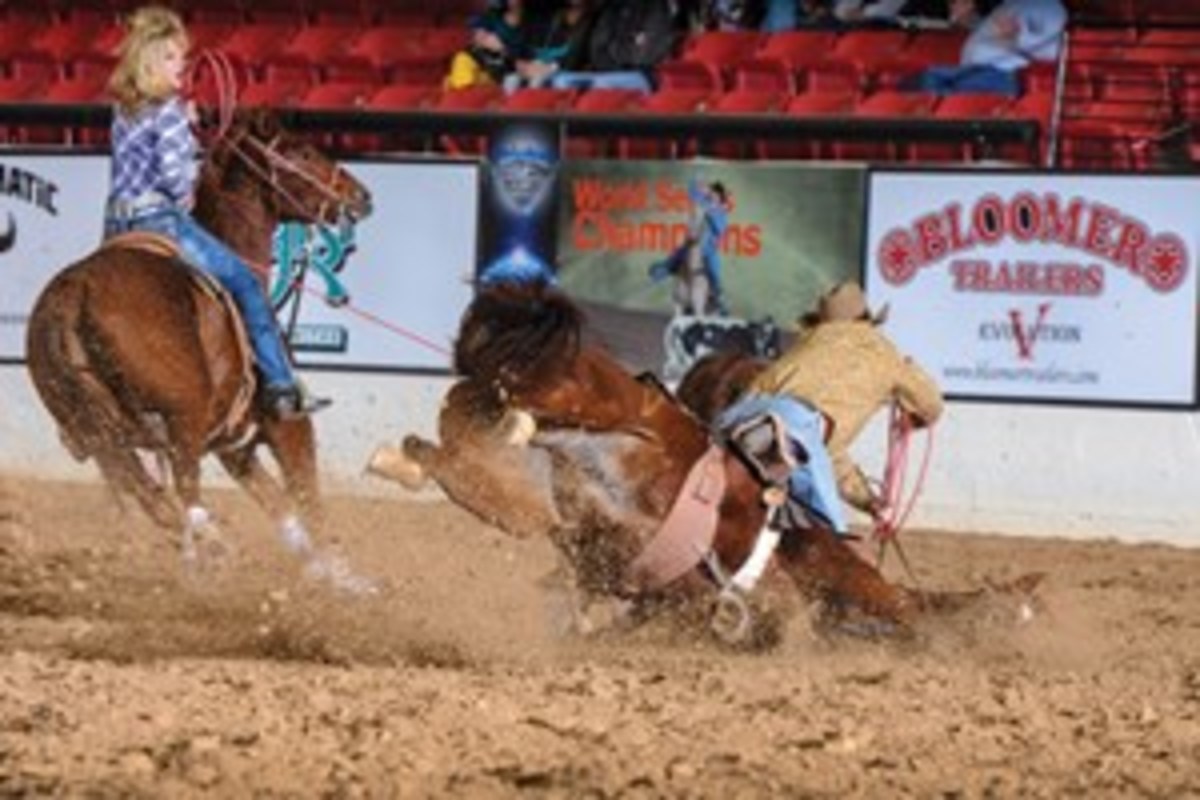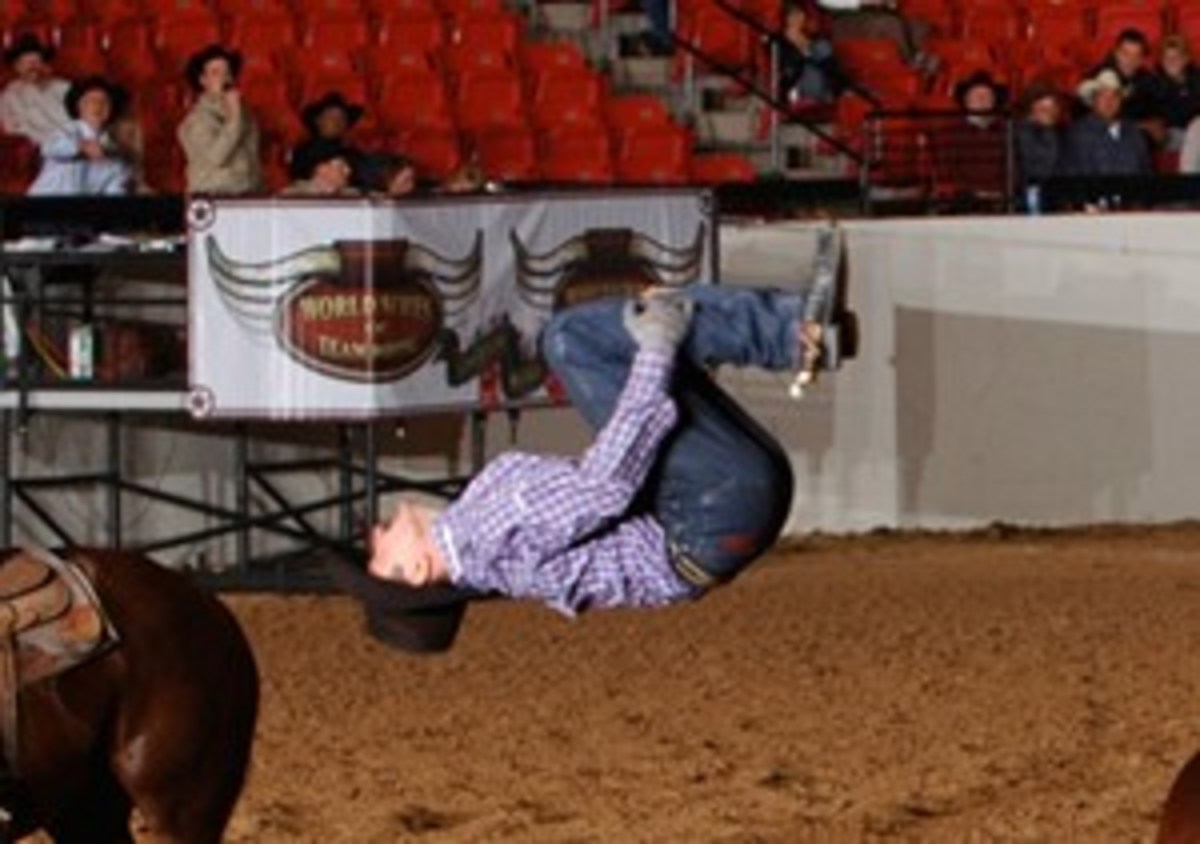Over the past 10 years, the World Series of Team Roping Finale has provided an arena for some of team roping’s most incredible moments. There have been stories of heartbreak and tragedy, success, glory, hard work, triumph and redemption—not to mention a little bit of history making in the process. These are some of the greatest and most memorable Finale moments.

#10: Back-to-Back Wins
If you’ve ever been to the Finale, you know it’s a large time, even as a spectator. Friends and family are not only roping for big money, but also a chance to make history. It gets exciting to say the least. Jared Udy, Newton, Utah, was the first and only contestant to win back-to-back Finale championships. Udy won the #11 in 2007 for a cool $150,000 dollars, and was back in the #13 short round in 2008. When he and his partner Ky Oberg, Ephraim, Utah, roped their fourth steer, Jared’s wife Emily cheered so loud she made the west side of the building wake up and take notice.
“That was awesome,” Oberg said. “It was great hearing them in the stands. The whole thing was a little bit nerve wracking. I’d have settled for second.”
The high call team pulled up a leg and Udy and Oberg held on to the win. History was made.
#9: The Short Round of Mistakes
The #11 Finale in 2011 was one of the most unbelievable short rounds of all time. The top seven teams in the short go could not stop the clock, ultimately leading to the most drastic shake up of winners ever witnessed at the South Point. Forty-third call back finished sixth overall. Cody Britten, Groom, Texas, and Junior Crump, Lelia Lake, Texas, jumped all the way from the 13th spot to claim the reserve title, $140,000, Gist buckles and Cactus saddles. Announcers with their hats on backwards, the crowd in amazement and the WSTR crew saying they’ve never witnessed anything like it, all added to the jaw dropping excitement as the eighth call back team of Q.B Cobb, Pampa, Texas, and Trew Cates, Booker, Texas, came tight on their steer in 8.66-seconds. When it was all said and done, Cobb and Cates went on to bank roll $200,000 and prizes.
#8: Tuley Does the Worm
Anyone who knows Kelly Tuley of Tuley Productions knows he’s a character, but no one was expecting this. In 2011, when he finished 7th in the #10 Finale with Keith Ragland, Wills Point, Texas, he showed the crowd his killer dance moves by jumping off of his horse and doing the “worm” right there on the South Point arena floor.

“We were all thinking, ‘What is he doing getting off his horse in the middle of the arena?’” said announcer Darren Moore. “It was absolutely hilarious.”
Tuley went home to Red Oak, Texas, with $20,000 and a lot of compliments on those dance moves.
#7: Recovering from the Fall
In team roping, like any other sport, accidents are just a part of the deal. In 2011, Kyon Sayer, Glendale, Ariz., came around the corner to heel his steer when his horse stumbled and fell. It looked to be a terrible wreck. Impressively, when the dust settled the horse was right side up and Sayer was standing on the ground. Twenty feet away, the steer was standing quietly with both feet in the heel loop. Both horse and roper walked away, but concentration and focus took on a new meaning.

#6: Introduction of the World Series Barrier
In 2011 the World Series of Team Roping made a bold move that forever changed the world of recreational team roping. The question of how to run million-dollar roping competitions in short, indoor roping arenas, with varying cattle speeds led to some lengthy discussions on historical rodeo scoring. Was it possible to give a steer a head start without giving undue advantage to a small number of competitors who had mastered scoring? Was it possible to stabilize the turn zone for cattle within a competition and balance the playing field for head horses? And the even larger question, had scoring become too much of an advantage within a given roping competition? It made little difference which of these questions ropers wanted to discuss, the WSTR responded with its answer. In 2010, with the help of Priefert Mfg., WSTR developed and began testing a no-barrier chute system. By 2011 the World Series barrier was a well-established facet of team roping. Just as the a national handicap flattened the playing field for ropers, the World Series barrier evened the playing field for head horses and amateur headers.
“It was incredible, we hadn’t seen anything like it before,” said announcer T.C. Long. “It not only made it easier for the roper, but it made it easier for producers, announcers and anyone helping with the roping.”
#5: Record Setting at Age 65
Harold Bumguardner of Torrington, Wyo., gave a tremendous performance in 2013 winning $160,000 for first place in the #12 Finale with partner Mike Grant, Wheatland, Wyo., ninth in the #10 with Jody York, Greeley, Colo., and twelfth in the #11 with Mike Carrell, Longview, Texas. Since that time, the pots have grown and many of the Finales pay more than $160,000 for a single win, but Bumguardner’s triple dip is still a record.
#4: The Back Flip
In 2007, jockey G.R. Carter, won the first and only #14 Pro-Am Finale to the tune of $80,000. Commonplace at the racetrack, back flips off of the saddle don’t attract much attention, but no one can recall it ever happening at a team roping. Carter went on a few years later to become the all-time leading money earning jockey in American Quarter horse racing history. But for this accomplished jockey, his WSTR win was just as exciting as all the wins he’s had in his professional career.

“That was about as big a high as winning the All-American futurity to me,” Carter said.
Judging by the height of that flip, he must have been awfully excited.
#3: When Roping Partners Become Family
When Phillip James Shurden, Decatur, Texas, and John Coltharp, Stephenville, Texas, won the #12 Finale in 2014, it meant a lot more than a huge paycheck. It was one of the most emotional Finale wins of all time. Shurden had lost his father in 2013 and hadn’t roped much since his passing. Header John Coltharp and his wife, Kay, had experienced the unimaginable, losing their only son in 2005 when he was just 16-years-old. The two ropers were acquainted when Coltharp became fast friends with Shurden’s sister, Jennifer Williams after relocating from Oklahoma to Texas in 2012. Over time the families have developed an unbreakable bond.
“Every time I look at my buckle or look at my saddles it makes me think of my dad,” Shurden said. “It was really a win for him. And to have it be with our Papa John, it couldn’t have worked out any better.”
#2: Triumph Over Tragedy
The best stories are those of triumph over tragedy. In 2014 Mark Aragon, Pagosa Springs, Colo., and his father-in-law Al Schultz, Cody, Wyo., topped the #9 Cactus Ropes Finale to take home $240,000. But for this team, the victory itself transcends any amount of money won. Aragon lost his wife, (and Schultz’s daughter) Kitty, to cancer. Schultz, a cancer survivor himself, also lost his wife Judy to the disease. It’s an incredible story of overcoming some of life’s most challenging obstacles.
“This win, for me, means that a person can do it,” said Aragon. “You can set a goal and if you think you can do it, have a good horse and a good frame of mind you can get it done.”
#1: Milestones That Make History
The World Series of Team Roping was created to provide ropers with an excellent roping experience while also giving them the opportunity to play for a big purse. But in 2013, the WSTR made history when ropers had the opportunity to rope for $7,268,000, surpassing the WNFR payoff as one of the highest paid equestrian events in the world. Since then, WSTR has reached another milestone, jumping from $7 million in 2013 to $10 million in 2014.
“The support that the roping community has given this association and the resources that the South Point Hotel & Casino have put into the facility to grow this event, may never be duplicated again,” said Denny Gentry.








